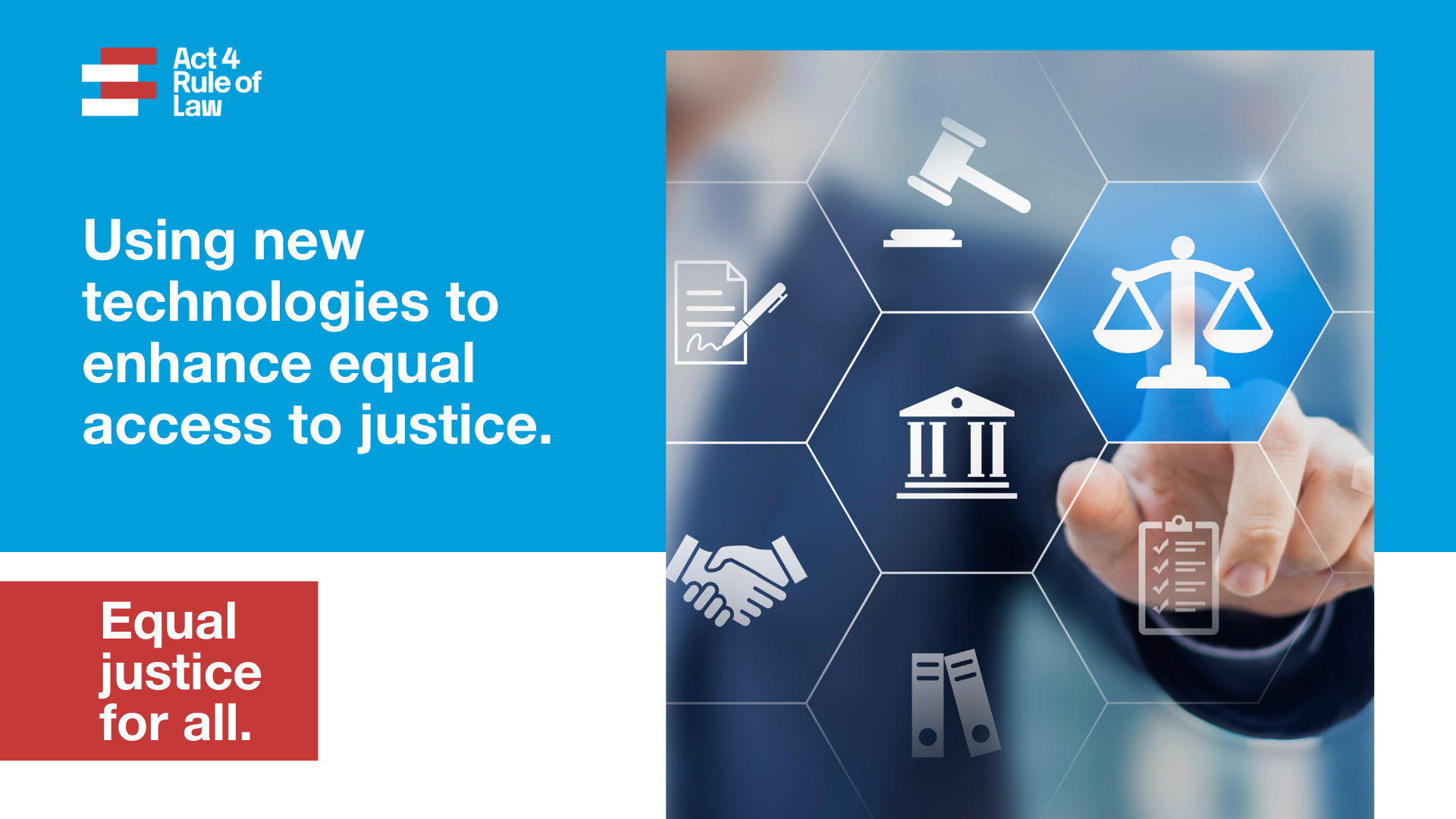insights
Innovation, technology and the rule of law
Promoting innovation and technology to uphold the rule of law means using new technologies to enhance equal access to justice, eliminate discrimination, increase transparency, and create a stable and just future for all – especially the most vulnerable and marginalized.
New technologies are changing the lives of people around the world. In the same way that they make daily tasks simpler, they can make official interactions with government institutions easier, and can provide innovative solutions to a host of rule of law challenges. Technology has an immense untapped potential to strengthen the rule of law. Technological innovation can provide equal access to justice, help to eliminate discrimination, and assure more transparency and accountability.
The internet, for example, can be a great equalizer, providing people from all walks of life access to a vast amount of information and resources. It can be used to ensure that people have access to information about government processes as well. This is particularly relevant in the public sector which must strive for transparency to prevent corruption. The rule of law means holding these institutions accountable, and new information and communications technologies can help make this happen. Many judicial systems have already begun to use technology to ensure that people are better informed. By publishing court cases and other decisions online, people can easily and affordably access this information.
Of course, one of the greatest gains of innovation is efficiency. Efficiency becomes a rule of law issue in time-sensitive areas, such as the administration of justice, or violence against women or children. Technology can provide marginalized groups with the resources they need to find help, and can assist in ensuring that the public sector can respond to their cases in a reasonable time frame to remove them from danger, or more promptly vindicate their rights.
In situations where there is a lack of resources, innovation and technology can help Governments maintain the rule of law. In the COVID-19 pandemic, the application of pre-existing technology has enabled activities crucial to the rule of law to continue remotely. Urgent legal cases have been heard via remote court hearings, and children and professionals have continued their education via online lessons. Moving forward, these innovations can help to advance the rule of law, especially in situations where resources are limited.
At the same time, the development, distribution and use of new technology must itself be governed by the rule of law. If used improperly, technology can pose a threat to the rule of law. For instance, determining prison bail based upon computer formulas can exacerbate discrimination even if it improves efficiency. Additionally, data privacy is part of an individual’s right to privacy and should always be protected when creating new applications. Acting for rule of law includes promoting technology alongside ethical safeguards to protect human rights.
Finally, as new technologies become increasingly essential to the functioning of the rule of law, the issue of equitable access becomes ever more important. The closing of the “digital divide” between countries, and between groups within countries, is therefore a rule of law imperative.




